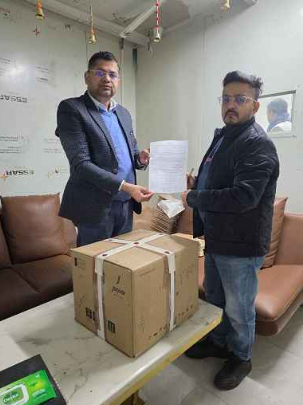New Delhi : The Department Related Parliamentary Standing Committee on Health and Family Welfare has recommended to the government to rationalise the annual price hike limit of cancer drugs from 10 per cent to 5 per cent in order to save the cancer patients.
It also asked the government to subsidise the cost of cancer drugs, if not possible to reduce the profit margin and explore group negotiation of commonly used high value cancer drugs with the pharmaceutical industry through a transparent central tendering platform.
In the latest report, the Committee also recommended to the Ministry to immediately take steps to declare the radiotherapy service as an essential commodity and work on a mechanism under which either the radiation therapy equipment and accessories are assembled or manufactured in the country.
In its 147th report submitted on August 4, based on the action taken notes submitted by the government on its previous report (139th report) on Cancer Care Plan & Management: Prevention, Diagnosis, Research & Affordability of Cancer Treatment, the Committee reiterated that the government should rationalize the annual price hike limit of cancer drugs from 10% to 5% in order to rescue the poor cancer patients.
“The Committee feels that the submission made by the Secretary, Department of Pharmaceutical before the Committee that over a period of about 8 years or so the
actual price increase in the drugs had been only between 2 to 4%, does not mean that each manufacturer keeps the price of the drug below 10%, as the mechanism permits them to make the hike up to 10%,” it observed.
Reiterating its earlier recommendation for reduction of retailers’ margin for lifesaving medicines, it said that the Committee is of the considered opinion that the mandate of National Pharmaceuticals Pricing Authority is to ensure availability of drugs at affordable prices.
“The Committee reiterates that, being a welfare state, pricing of cancer drugs should not be guided by the profit motive as in the case of the other business line. If it is not possible to reduce the profit margin of such drugs the government may subsidise it,” averred the Committee chaired by Member of Rajya Sabha Bhubaneswar Kalita.
In its earlier report, it observed that 16% margin for retailers in determining prices of the medicine under National List of Essential Medicines (NLEM) are too high as the same must have bearing on the price of the lifesaving medicines.
“The Committee is not in agreement with the argument of the Secretary, the Department of Pharmaceuticals that since a margin of 10 to 15% is provided in government contracts or other line of business, therefore, 16% retailers’ margin stands rationale. The analogy between the retailers 16% margin and the profit margin of 10 to 15% margin in government contracts or other line of business is absolute and out of context as the government while providing healthcare services to the cancer patient should not be guided by the profit motive as in the case of the other business line,” it said in the 139th report.
In its latest report, the Committee recommended that the Ministry concerned should instruct the National Cancer Grid to explore Group Negotiation of commonly used high value cancer drugs with pharmaceutical industry through a transparent central tendering platform to have substantial discount on cancer drugs and thereby passing the benefits to group members for onward transmission to the patients.
“The Committee again recommends the government to extend such price negotiation to equipment & consumables also,” it added.
Since the ministry of health and family welfare is authorised to declare radiotherapy service as an essential commodity, the Ministry should take the matter on board immediately and declare the radiotherapy service as an essential commodity so that patients can get some relief from bearing the high cost of the service.
The Department of Atomic Energy suggested that Radiation Therapy Equipment and Accessories may be classified as Life Saving Devices and the customs duty be significantly reduced so that the cost of treatment can be reduced substantially and benefit is passed on to the patients.
However, the Committee reiterated that the Ministry should work on a mechanism under which either the machines are assembled in the country or are manufactured indigenously.






